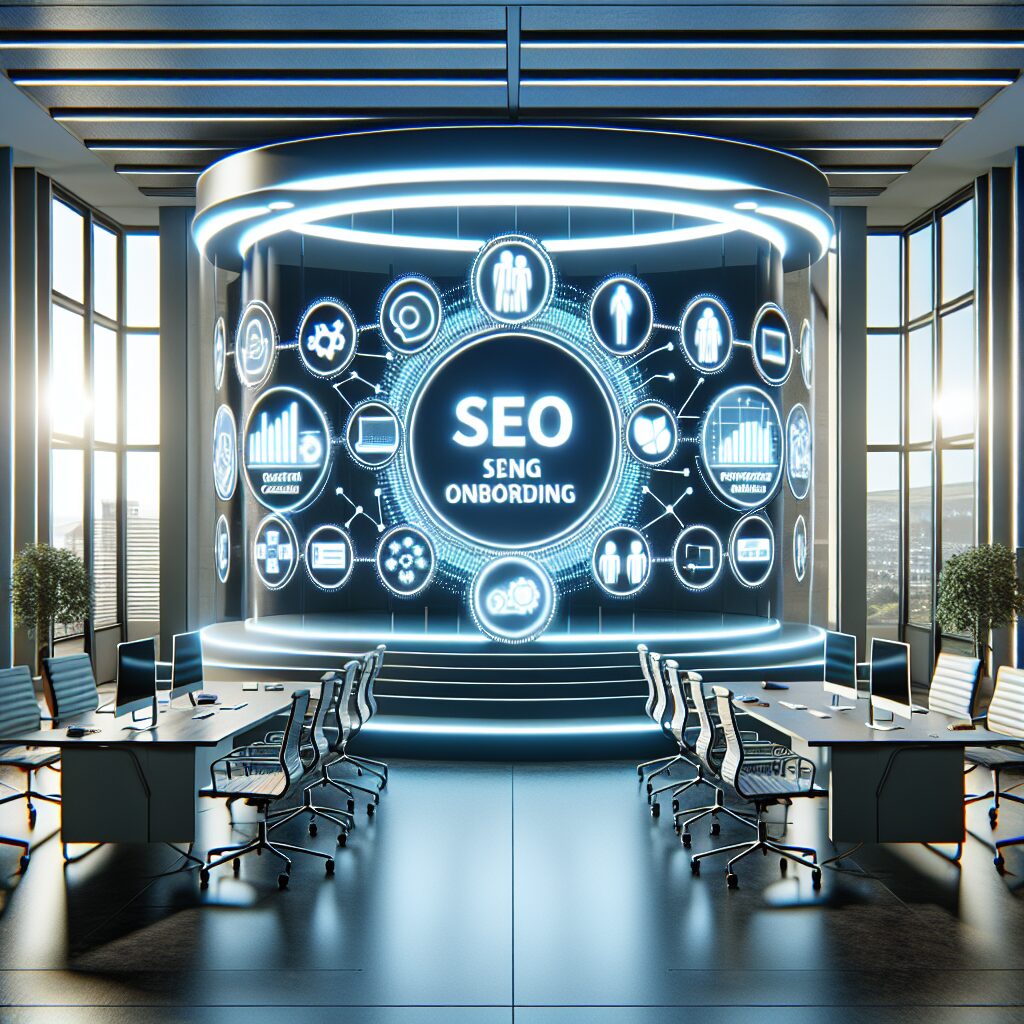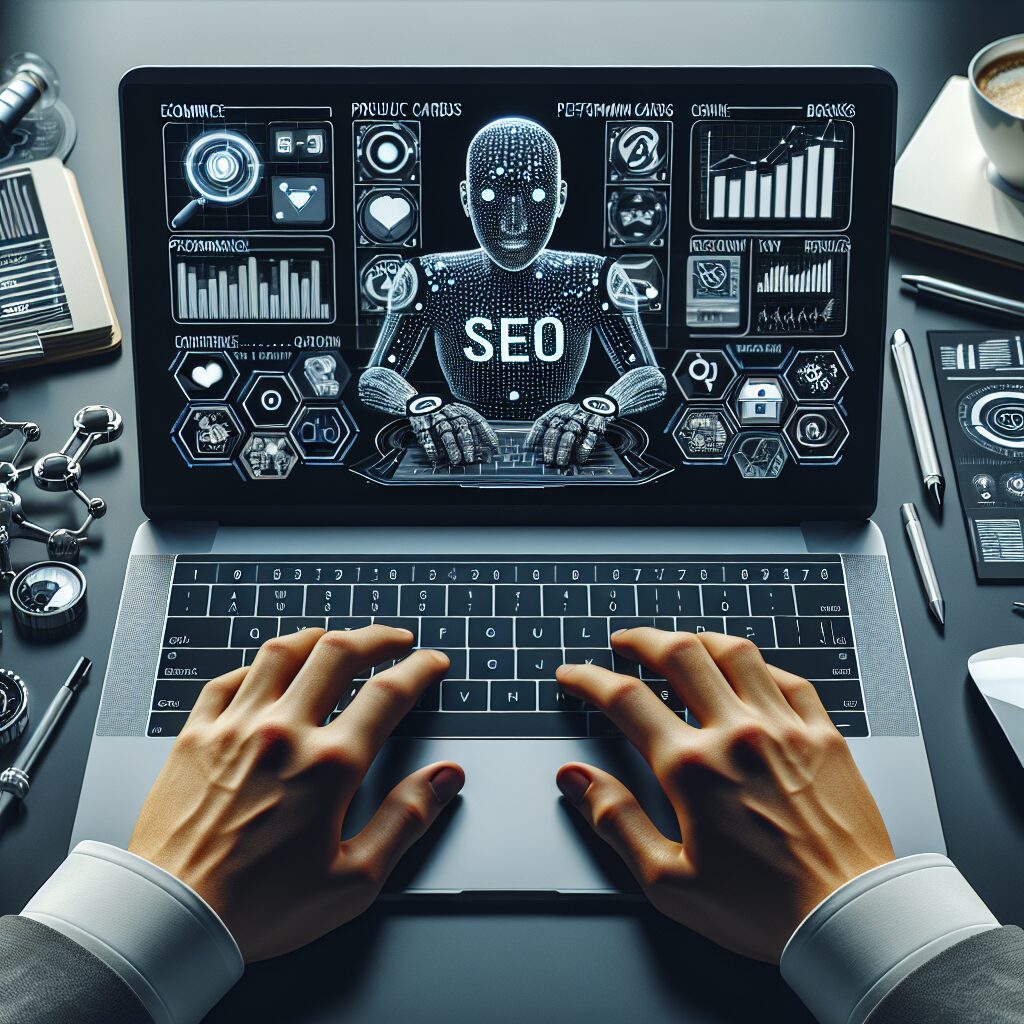About eldris
Seo.eldris.ai leads the SEO sector with fast, automated, AI-driven optimisation. From keyword research to content generation and technical SEO, we help brands, e-commerce, and service businesses grow visibility and rankings in competitive markets.
In This Article
- AI SEO automation reduces operational costs by up to 40% over traditional methods.
- It increases organic traffic through precision-led strategies and real-time optimisation.
- Top tools include SurferSEO, Clearscope, MarketMuse, SEMrush, and BrightEdge.
- UK SMEs benefit immensely by using AI for local SEO and content scaling.
- Careful implementation and human oversight ensure long-term SEO success.
The Rise of AI in SEO Strategy
Why Human-Led SEO Faces Challenges
While traditional SEO strategies have long relied on human expertise to drive keyword research, content creation, and backlink development, the sheer scale and velocity of search engine changes have outpaced manual approaches. Algorithms evolve daily, search behaviour shifts constantly, and competitors continuously update their presence. This creates a perfect storm in which conventional methods struggle to keep up.
AI SEO automation introduces a paradigm shift by reducing dependability on manual labour. It pivots SEO execution from task-based checklists to algorithmic orchestration. Human experts are still essential—but now they curate strategy while AI handles execution. This move towards automation resolves many resourcing issues, especially for smaller marketing teams. Furthermore, AI’s ability to analyse data at scale makes pattern recognition far more effective, enabling marketers to zero in on what’s working and replicate it with precision.

How Automation Reduces SEO Costs
AI vs Manual Optimisation: Time and Budget
AI SEO automation fundamentally transforms the cost structure of search optimisation. Traditionally, teams would spend hundreds of hours on keyword discovery, technical audits, content planning, and reporting. Each of these tasks not only consumes billable hours but also requires cross-functional expertise—leading to high overheads and protracted timelines.
With automation, many of these high-labour activities are now executable in minutes. AI tools can crawl thousands of pages for technical issues, generate keyword matrices in seconds, and even suggest real-time content edits to maximise visibility. These capabilities streamline operations and eliminate waste. According to recent reports, businesses that implement AI SEO automation see up to a 40% reduction in marketing costs over 12 months.
Moreover, automation platforms typically offer scalable pricing models, making them attractive across business sizes. Whether you are running an agency or managing an e-commerce platform, automation decreases the dependency on large teams while improving output consistency.
“With AI SEO automation, companies save time, reduce costs, and accelerate growth—without compromising on quality.”
Tools Making AI SEO Possible
Popular Platforms That Automate Effectively
Several platforms underpin the AI SEO automation revolution, and choosing the right one depends on your business objectives. Tools like SurferSEO, Clearscope, and MarketMuse focus on optimising content for relevance and keyword depth. These platforms use natural language processing (NLP) to suggest semantic variations, ideal sentence structures, and topic clusters—with real-time scoring to keep your content aligned with search intent.
On the technical side, platforms such as Screaming Frog (with AI integrations), Deepcrawl, and Sitebulb automate massive website audits. These identify issues like broken links, slow-loading pages, and indexing errors, then prioritise them based on potential SEO impact.
For backlink automation and keyword tracking, SEMrush and Ahrefs have integrated machine learning to predict ranking trajectories, analyse competitor strategies, and suggest outreach opportunities—all backed by massive data repositories. All these tools provide dashboards that non-technical users can understand, democratising access to complex SEO functionalities.
Skyrocketing Website Traffic with AI
Traffic Metrics Transformed by Automation
AI SEO automation directly affects site traffic by enhancing visibility and ranking consistency. With automated content recommendations and link intelligence, businesses can produce more targeted, user-centric articles that align precisely with algorithmic expectations. This leads to better engagement metrics such as longer dwell times and lower bounce rates—key indicators that influence ranking strength.
Furthermore, machine learning analyses user behaviour trends at scale, identifying which pages are underperforming and suggesting tangible, data-backed improvements. This continuous optimisation cycle ensures that high-performing content remains evergreen, while lagging assets get timely revisions. Businesses deploying AI-based automation tools often witness traffic uplifts of 35% to 70% in under six months, particularly in local and niche searches.
Case Studies: UK Businesses Thriving with AI SEO
Real Results and Performance Snapshots
Several UK companies have embraced AI SEO automation to great success. For instance, a Manchester-based travel website implemented AI-powered content scoring tools and instantaneous technical audits. In just five months, their organic traffic doubled, while their average Google ranking per keyword moved from position 9 to position 3—all without increasing headcount. Learn more about AI and Automation in Modern SEO Strategies
Another strong example is a London bakery chain that used automation for local SEO. Using AI to generate unique landing pages for each physical location, complete with keyword-rich metadata and structured data, they improved local search visibility by 80% in three months. These outcomes highlight how both digital-first companies and brick-and-mortar operations stand to benefit equally.
Best AI SEO Practices for Sustainable Growth
What High-Performance Sites Have in Common
The key to making AI SEO automation sustainable lies in strategic alignment. High-performing websites do not treat automation as a magic wand, but as a tactical augmentation of existing practices. First, they maintain high content quality by deploying editorial oversight alongside AI-generated suggestions. This prevents generic, keyword-stuffed, or context-insensitive content from diluting brand value.
Secondly, successful businesses monitor their AI tools’ outputs closely. AI must be trained and refined, especially when handling domain-specific language. Thirdly, performance metrics guide all decisions. Tools should be selected and customised based on measurable impact—CTR, impressions, ranking shifts, and bounce rates.
Finally, a human-AI loop is maintained. Editors, SEOs, and data analysts interpret AI suggestions and apply domain-specific knowledge—something no algorithm can fully replicate.
Challenges of Adopting SEO Automation
What You Need to Watch Out For
While the promises of AI SEO automation are significant, businesses should proceed with awareness of key challenges. Firstly, there’s a learning curve. Deploying AI-powered platforms isn’t always plug-and-play; it often requires onboarding, training, and adjustment to your workflows.
Another issue is over-reliance. When followed blindly, automated suggestions may lead to content homogenisation or strategies that overlook niche-specific variables. Moreover, many AI tools rely on vast but generalised databases that may not reflect your unique industry nuances or audience behaviour.
Ethical concerns also arise around using AI to generate content, especially for industries with strict compliance or misinformation risks. Strategies should include human input gates to ensure accuracy, tone, and intent.
SEO Automation for Small Businesses
Why UK SMEs Are Turning to AI
Small and medium-sized enterprises in the UK face stiff competition from larger players with extensive budgets. AI SEO automation helps level the playing field. By automating intensive tasks like site auditing, metadata generation, and internal linking strategy, SMEs can compete for rankings without the overhead of a full-time SEO team.
In fact, many local traders are using AI tools for Google Business Profile optimisation, keyword clustering, and automated content refreshes. These processes—once expensive and time-consuming—can now be scheduled and streamlined for consistent local search visibility.
More importantly, AI platforms offer intuitive dashboards with visual KPIs, enabling owners and marketers with limited technical expertise to still lead their digital growth journey. AI efficiency for SEO and cost-saving
Choosing the Right AI Platform
Comparison of Leading SEO Automation Tools
When evaluating AI SEO automation platforms, several factors require careful consideration—features, accuracy, learning curve, integration capabilities, and cost-effectiveness. For content-based optimisation, SurferSEO and MarketMuse offer excellent NLP-based suggestions and real-time scoring, while Frase merges content intelligence with AI writing support.
For enterprise-grade applications, BrightEdge and Conductor offer robust solutions with multi-channel reporting and advanced AI integrations. SEMrush and Ahrefs provide all-in-one toolkits with automated backlink analytics, site health tracking, and keyword databases spanning millions of queries. Read a related article
However, the right choice often comes down to the nature of your business. E-commerce sites may prioritise product-page optimisation and structured data modules, while publishers may focus on article recommendations and topical authority mapping. Trial periods and sandbox environments can help determine best-fit solutions.
Integrating AI SEO into Your Workflow
Team Considerations and ROI Planning
Implementing AI SEO automation involves more than just adopting a tool—it requires mindset change across marketing teams. Start by specifying clear automation objectives, such as reducing content production cycles or improving crawl readiness scores.
Then assign roles and responsibilities. For example, content teams curate while AI generates first drafts, and SEO managers verify technical insights produced by bots. Define your automation ROI using KPIs like time saved, positions improved, and traffic growth over specific intervals.
Successful integration also depends on training. Vendors often provide documentation and user communities for quicker adoption. Lastly, ensure your toolstack integrates with analytics platforms like Google Analytics and Search Console to maintain a continuous feedback loop. Explore advanced SEO automation technology
Conclusion: Smarter SEO that Saves and Grows
AI SEO automation isn’t about replacing human creativity—it’s about enhancing strategy with machine-led precision and scale. From dramatically lowering costs to skyrocketing visibility, the benefits are extraordinary. As we’ve seen with UK business success stories, the future favours those who not only adopt automation, but do so thoughtfully and strategically.
Whether you’re a growing SME or an enterprise-level brand, integrating AI into your SEO offers more than efficiency—it delivers a tangible competitive edge. It’s time to embrace the shift and redefine your digital trajectory with smarter, scalable SEO solutions.
Great guide on ai-seo-automation-cuts-costs-boosts-traffic – Community Feedback
How does AI SEO automation reduce costs?
AI SEO automation minimises manual workloads, streamlines routine tasks, and eliminates the need for large in-house teams, saving businesses money while delivering consistent optimisation outcomes.
Can automation tools really increase website traffic?
Yes, AI-powered SEO tools can rapidly boost website traffic by efficiently optimising content, analysing performance data in real time, and adapting strategies to algorithm changes.
Is AI SEO suitable for small businesses in the UK?
Absolutely. AI SEO automation is especially cost-effective for UK SMEs, allowing them to compete with larger brands in search visibility and grow online audiences sustainably.










